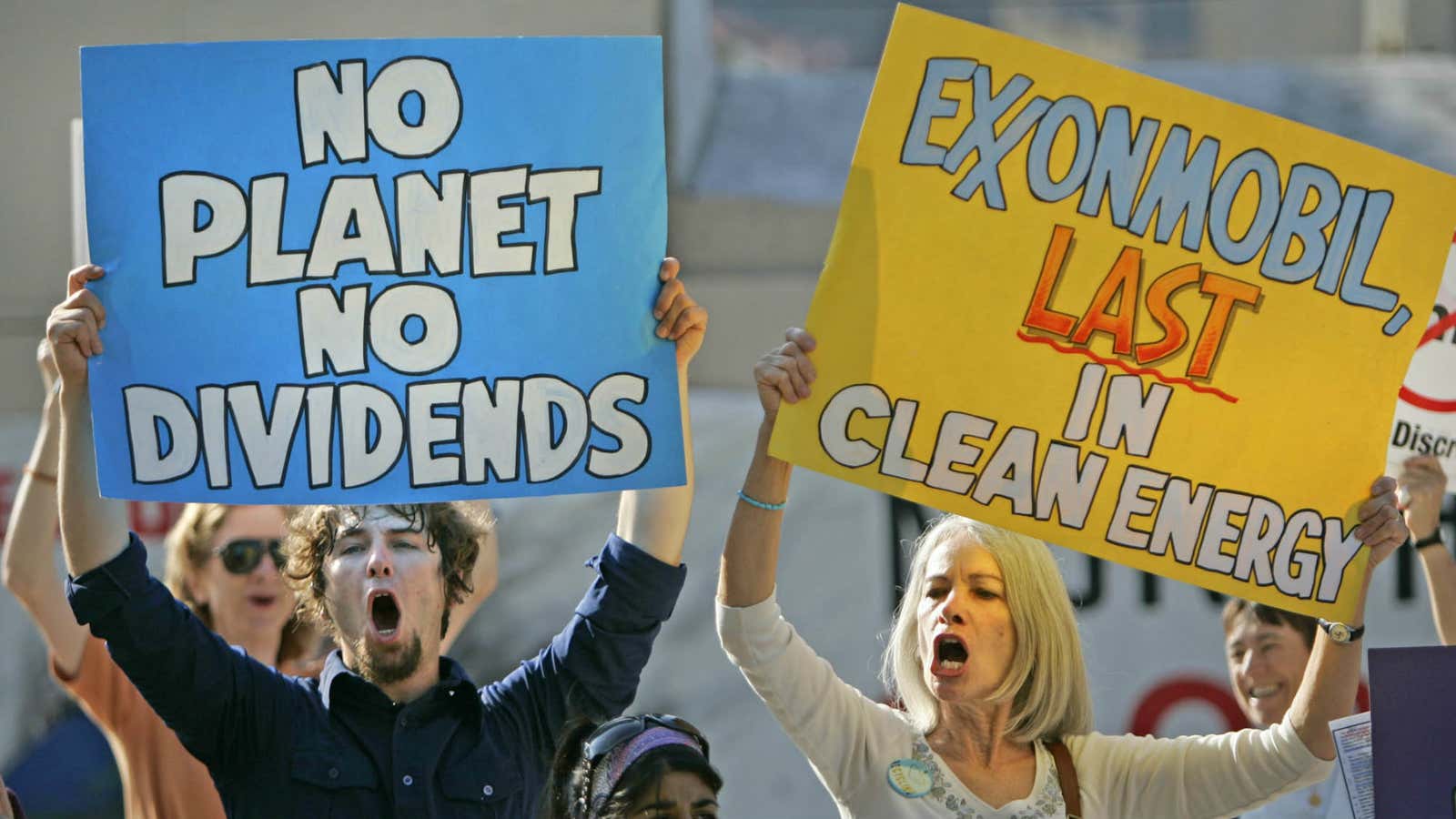ExxonMobil and Chevron—two of the largest oil companies in the US—have been ordered by the Securities and Exchange Commission to allow a shareholder vote on climate-change disclosures.
The proposal, spearheaded by the New York state comptroller, would prod the two companies to disclose whether they could financially withstand a world in which carbon restrictions reduced demand for petroleum products. They initially resisted but relented in the face of the SEC order issued this week, both firms confirmed to Quartz. The news came the same day that the Rockefeller Family Fund criticized Exxon for allegedly stymying climate-change research as it announced that it would be divesting from fossil fuels.
Exxon had initially panned the proxy proposal in a letter its law firm, Davis Polk & Wardell, sent to the SEC in January. It called the proposal “inherently vague and misleading.”
And though the proposal specifies that the companies’ assessments could, or should, omit proprietary information, Chevron had this to say about the measure, in a statement emailed to Quartz:
Chevron utilized an established no-action request process set out by the SEC because the proposal requests the public disclosure of our internal analysis and carbon pricing, which would provide our competition with a window into our viewpoints, operations, resource and reserve base, asset queue and decision making. In addition stockholders have had sufficient opportunities to express their opinions on the proposal topic at our 2011 and 2015 Annual Meetings.
It’s not entirely clear whether this kind of shareholder activism will win out at either company’s annual meeting. Exxon’s biggest shareholders, for instance, are firms like Vanguard and Fidelity, which manage 401k accounts and the like on behalf of individual investors. Neither firm would say which way it would side. BlackRock, another large holder, referred Quartz to its proxy voting guidelines, which expresses support for so-called socially responsible investing but says, ultimately, “We do not see it as our role to make social, ethical or political judgments on behalf of clients.”
